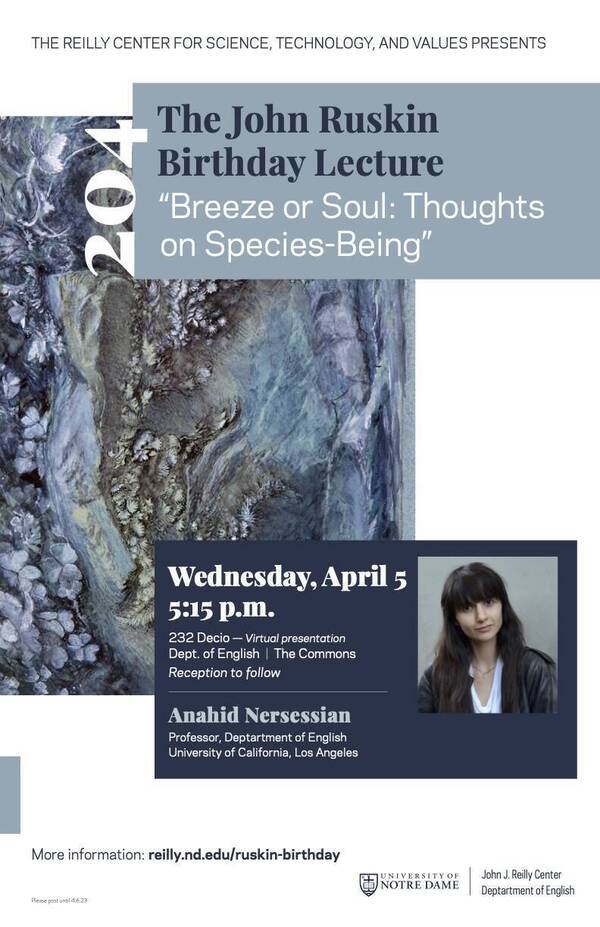“At the very time when it most often mouths the word,” writes Aimé Césaire in his Discourse on Colonialism, “the West has never been further from being able to live a true humanism—a humanism made to the measure of the world.” That was in 1950, but it easily describes the various political and ecological crises of the twenty-first century. In this talk, I propose not a retrenchment within humanist ideals, but a redefinition of the human through the category of species-being, a term that comes to us from Marx but has important precedents in Aristotle and Hegel. Moving between episodes in the history of labor, philosophy, and poetry—from Romanticism to the present—I first discuss species-being in general terms before moving onto an extended reading of William Blake’s Jerusalem the Emanation of the Giant Albion (1804–1820), focusing on the relationship between Blake’s experimental free verse and his pervasive, often puzzling critique of the social experience he calls “shame.”
